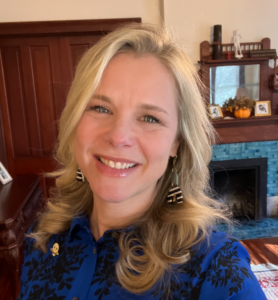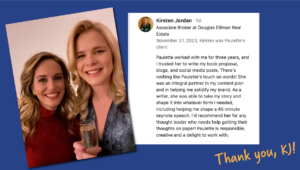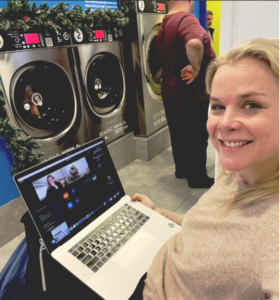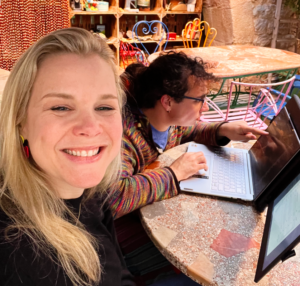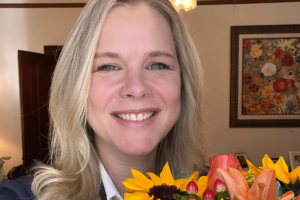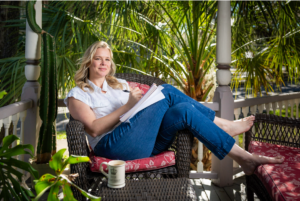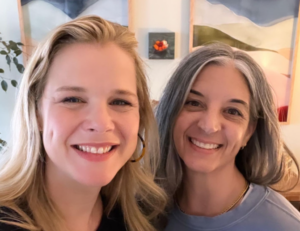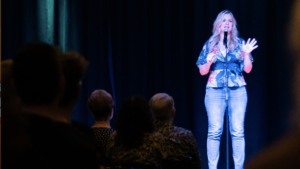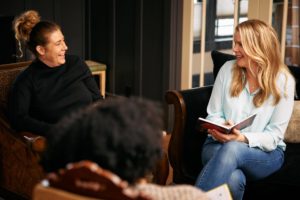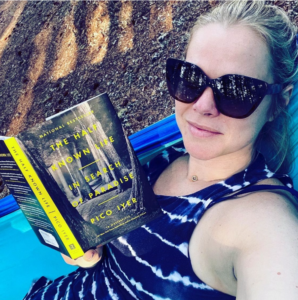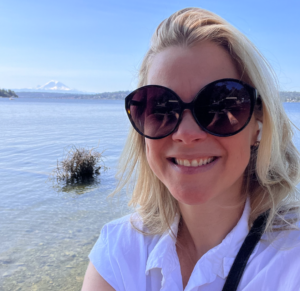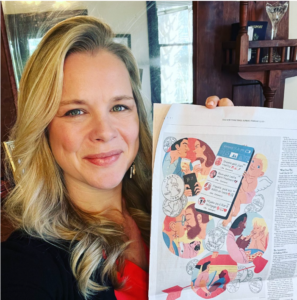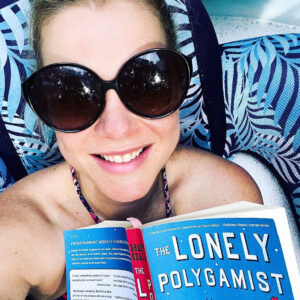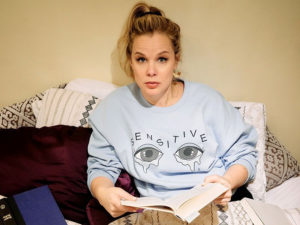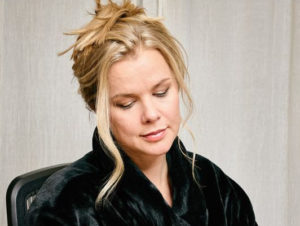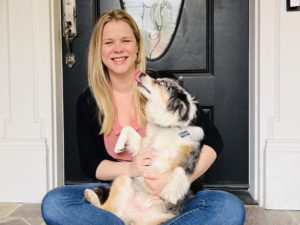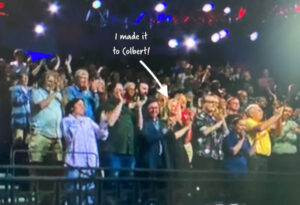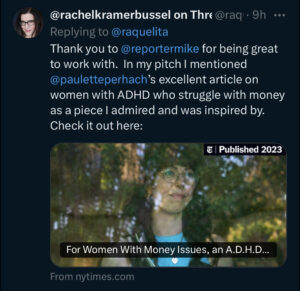I am feeling feelings about Kristen Arnett’s book, Mostly Dead Things, an absolutely fabulous and hilarious novel set in Florida.
Psst: This site uses affiliate links.
Hey Paulette, weren’t you supposed to be working on a novel set in Florida? Are these notes from 2012 from the book you still haven’t finished? What have you done with those 70,000 words from grad school? Nothing? That’s cool.
Shut your mouth, self.
Kristen’s wonderful book is a positive in the negative space of my own work.
So yeah, feel those feelings, madam.
Artistic envy can feel like a creepy secret. But I think it only is if you let that be the end of the story.
One of the most useful skills I’ve developed as an artist is the ability to identify and use artistic envy, even if it takes a few days, rather than letting it sit in my gut like the liquefied innards of a roadkilled baby raccoon. (Read Kristen’s book, you’ll get it.)
If I catch myself feeling, well, bad when another artist is killing it, I try to just see that feeling as a north star. Clearly, this is something I want to move toward myself.
Here’s how I compost artistic envy into inspiration:
Step 1: Accept that artistic envy is, like, a regular, human thing.
You did not invent the ego. You’re not the only one feeling that way. The person you feel envious of most likely feels envious of someone else, and so on and so forth forever and ever amen.
Step 2: Forgive yourself.
You don’t even have to tell anyone what you’re feeling or write a blog post about it. But you can write about how you’re feeling for yourself, tell yourself it’s fine, and then burn that piece of paper.
Step 3: Learn from the person who has the thing you want.
If you’re operating from a scarcity mindset, seeing someone with the career/book/ass you want can feel like they got the only opportunity. Well, there’s the only funny book about Florida to ever be published again, damn it. This might be especially true of women.
In Ann Friedman’s wonderful essay, Shine Theory: Why Powerful Women Make the Greatest Friends, she says, “When we meet other women who seem happier, more successful, and more confident than we are, it’s all too easy to hate them for it. It means there’s less for us. ”
Luckily for me, Kristen Arnett is about as lovely a person as you could ever hope to meet, as I did at the last AWP, and at her reading in Seattle.
I have before heard smack talk that I really knew was envy. One vicious comment, about a vivacious (male) writer who came to town, was, “He likes to be liked.”
I, who liked him, was taken aback. Don’t we all like to be liked? Is this an attack on charm?
Where we might want to recoil, lest we get too close and let juxtaposition do its job, here’s what Friedman advises: “When you meet a woman who is intimidatingly witty, stylish, beautiful, and professionally accomplished, befriend her.”
Even better, learn from her. When Kristen talked about creating the hot pile of trash that was her first draft (a step I have yet to complete in more than a decade of wanting to), I took the Q&A time to ask, for the love of god, how?
You can listen to her answer here, (posted with her permission after her interview with Richard Chiem, also heard here):
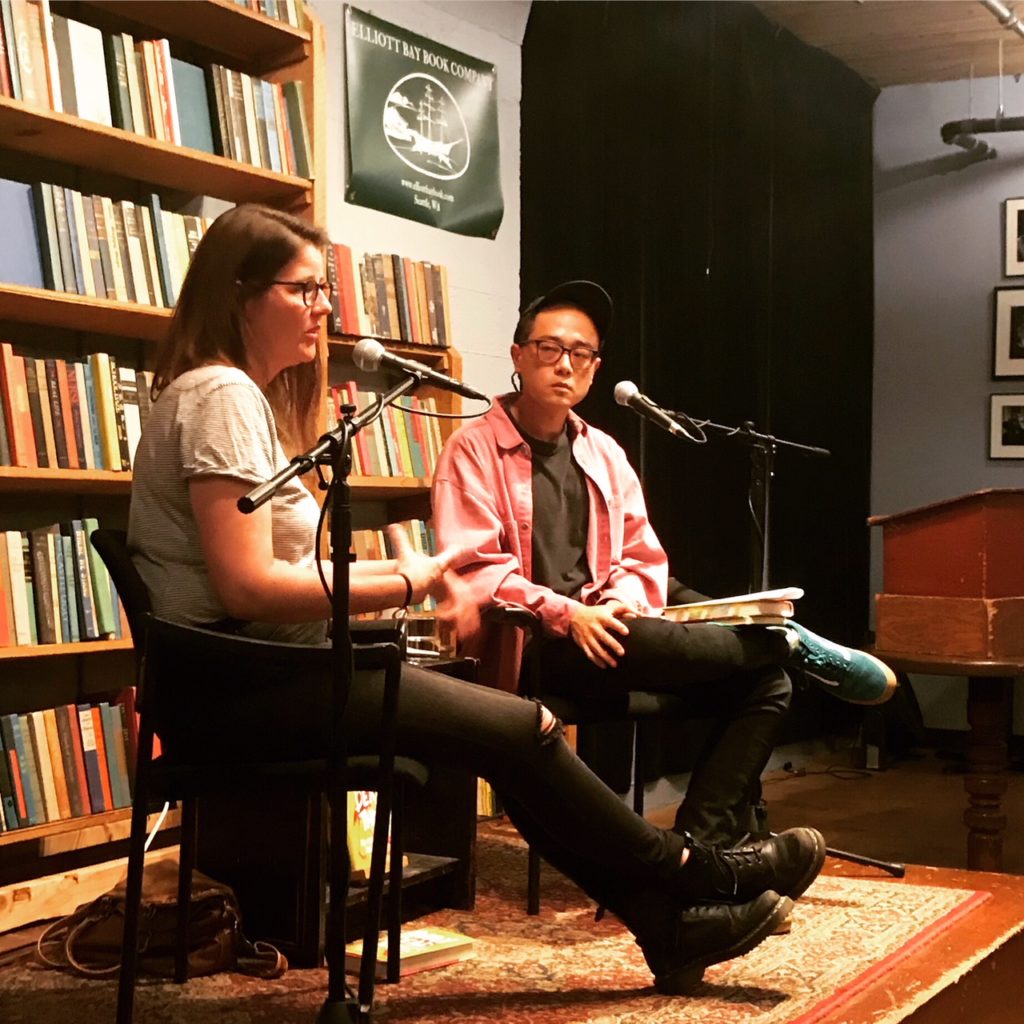
Basically, she says she made herself do 1,000 words every weekday. She gave me a clue as to how I could do this myself.
Re-listening to this, I love that Kristen calls herself a dummy, reminding us that no writer, no matter how successful, can ever seem to be nice to themselves.
Envy is really about yourself. I think the best way to be kind to yourself is to not add the second arrow of shame to your feelings.
“I feel envious and hence I’m a bad artist and a bad person” is not the song you want to fall asleep to.
“I feel envious and hence that’s a message that I need to get more serious about my own projects” will have you waking up ready to work.
I bought Kristen’s book and savored it in a hammock and on vacation through the weekend. Her opening chapter is powerful as it sets up stakes, something the character wants, and flaws that hold the character back. (See, I’ve been taking writing classes for 10 years, I can see these things now.)
And better, I wrote the equivalent of 1,000 words per weekday, as Kristen advised. A thousand the morning after her reading, and because I didn’t do them Thursday or Friday, 1,000 each on Saturday and Sunday, even though I was visiting people out of town.
I got more serious, more dedicated, closer to the thing I clearly want.
I’m also listening to Audre Lorde’s Sister Outsider right now, and this reminded me of something she said about guilt.
Though to be clear, the stakes are higher here; she’s dealing with oppression. So it’s not a parallel in terms of gravity. But I think the principle of action vs. paralysis stands if you replace guilt with envy here:
“Guilt is not a response to anger; it is a response to one’s own actions or lack of action. If it leads to change then it can be useful, since it is then no longer guilt but the beginning of knowledge. Yet all too often, guilt is just another name for impotence, for defensiveness destructive of communication; it becomes a device to protect ignorance and the continuation of things the way they are, the ultimate protection for changelessness.”
The successful artist and human knows that you don’t just feel your feelings, you have to do something with them.




